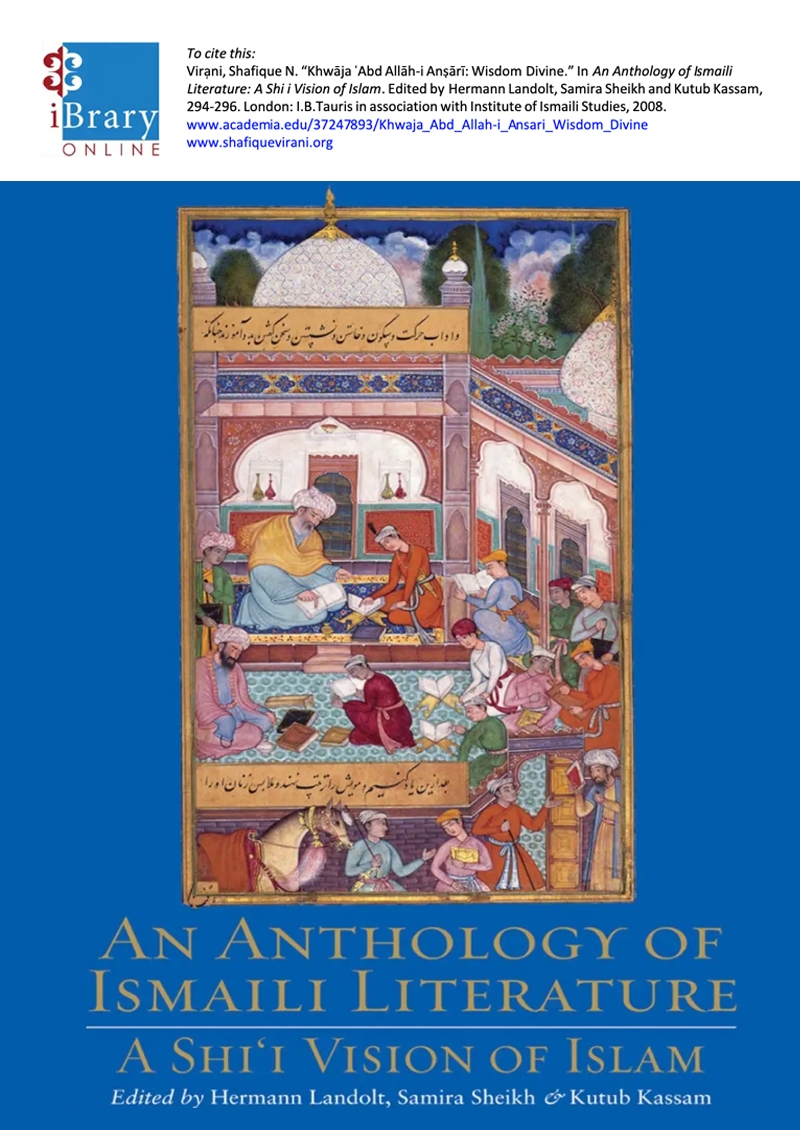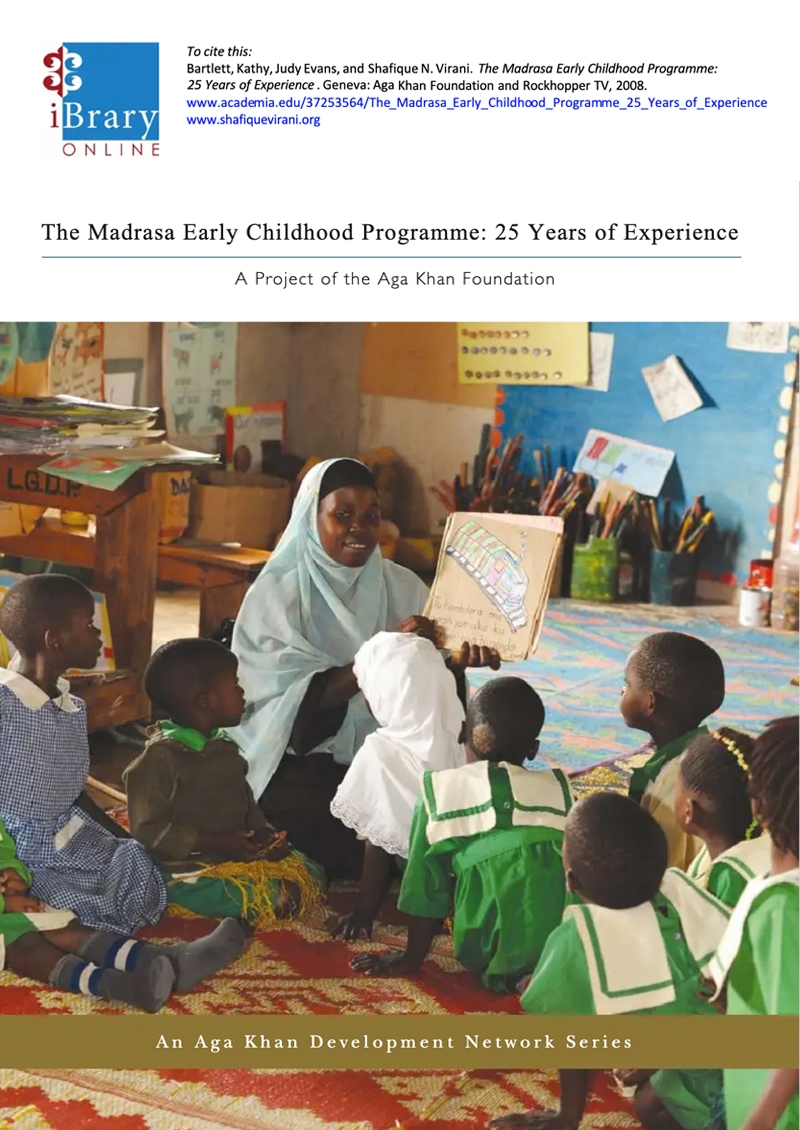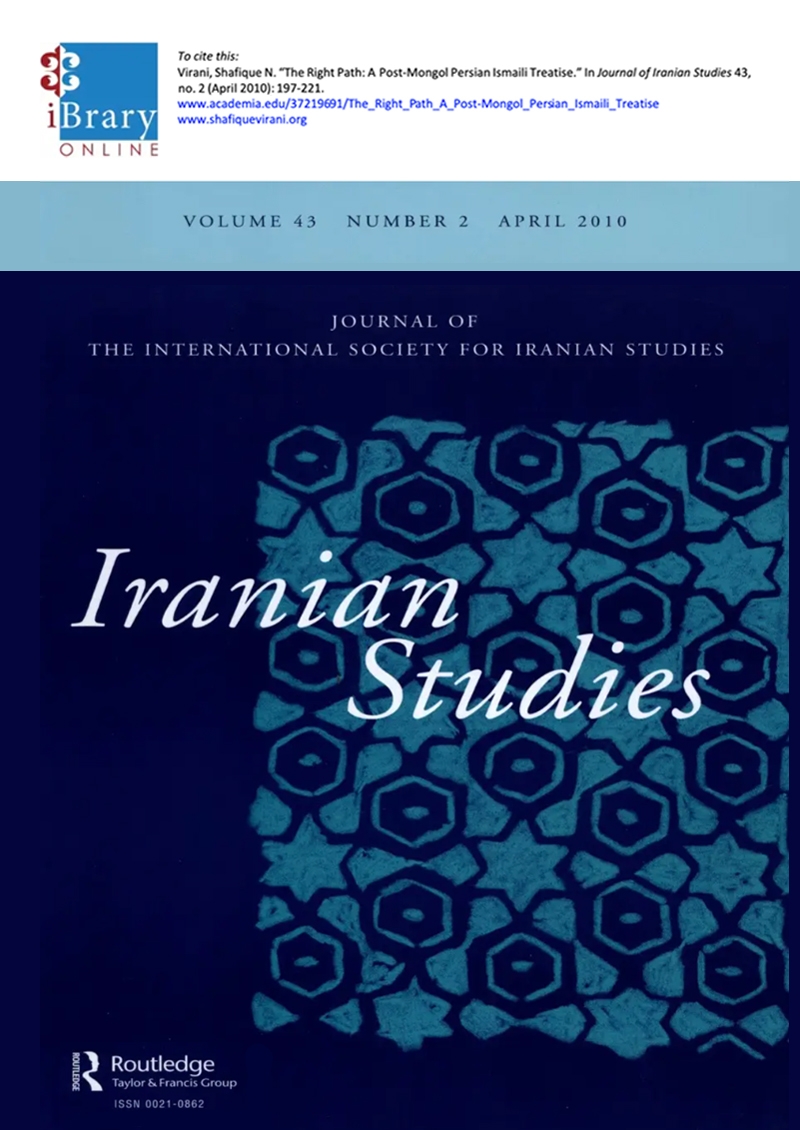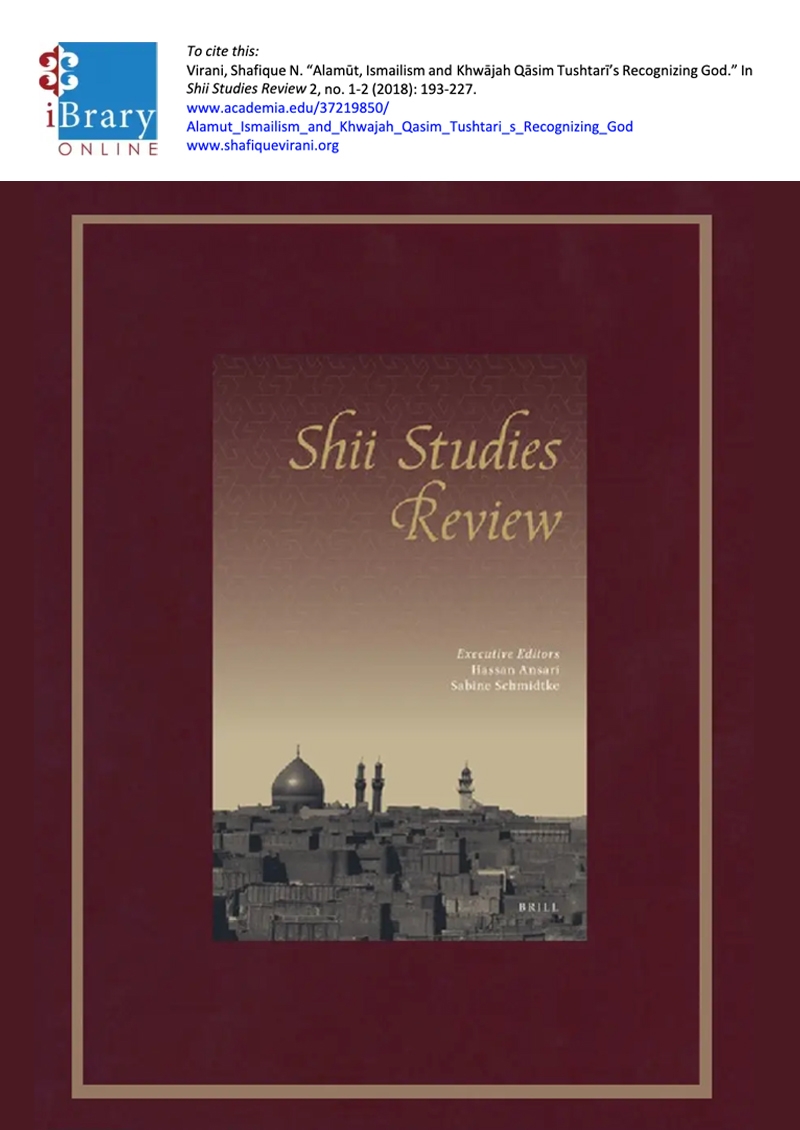Publication – English
Khayrkhwah-i Harati: The Epistle (Risala)
An Anthology of Ismaili Literature: A Shi’i Vision of Islam, 2008
Abstract:
Khwaja Muhammad Rida b. Sultan Husayn was a native of the village of Ghuriyan, a dependency of Herat in present-day Afghanistan. He lived in the 10th/16th century and commonly referred to himself as ‘Khayrkhwah,’ the ‘Well-wisher.’ The following is an extract from the beginning of one of his works, entitled simply “The Epistle” (Risala). The passage delves into the importance of spiritual edification, or ta’lim, and the role of the Ismaili hierarchy, the hudud-i din, in leading the adepts to a recognition of the divine. It also elaborates the existence of three categories among creatures. In the spiritual world, those of the first category testified with knowledge and conviction to God’s sovereignty over them; the second category also testified to God’s sovereignty, but only in imitation of the first category; and the third category denied the sovereignty of God altogether. The physical world was created so that those of the second category could attain true recognition and certainty. Meanwhile, the first category manifested in the world as the hujjat or ‘proof’’ of the imam so as to nurture the souls of the second category and to lead them to God by spiritual edification (ta’lim), while the third was manifested to nurture the physical life of the second category.
Cite this publication:
Virani, Shafique N. “Khayrkhwāh-i Harātī: The Epistle (Risāla).” In An Anthology of Ismaili Literature: AShiʿi Vision of Islam. Edited by Hermann Landolt, Samira Sheikh and Kutub Kassam, 247-249. London:I.B. Tauris in association with Institute of Ismaili Studies, 2008. the third category denied the sovereignty of God altogether. The physical world was created so that those of the second category could attain true recognition and certainty. Meanwhile, the first category manifested in the world as the hujjat or ‘proof’’ of the imam so as to nurture the souls of the second category and to lead them to God by spiritual edification (ta’lim), while the third was manifested to nurture the physical life of the second category.
Share what you’re reading on social media
If you liked this, you may also enjoy reading




